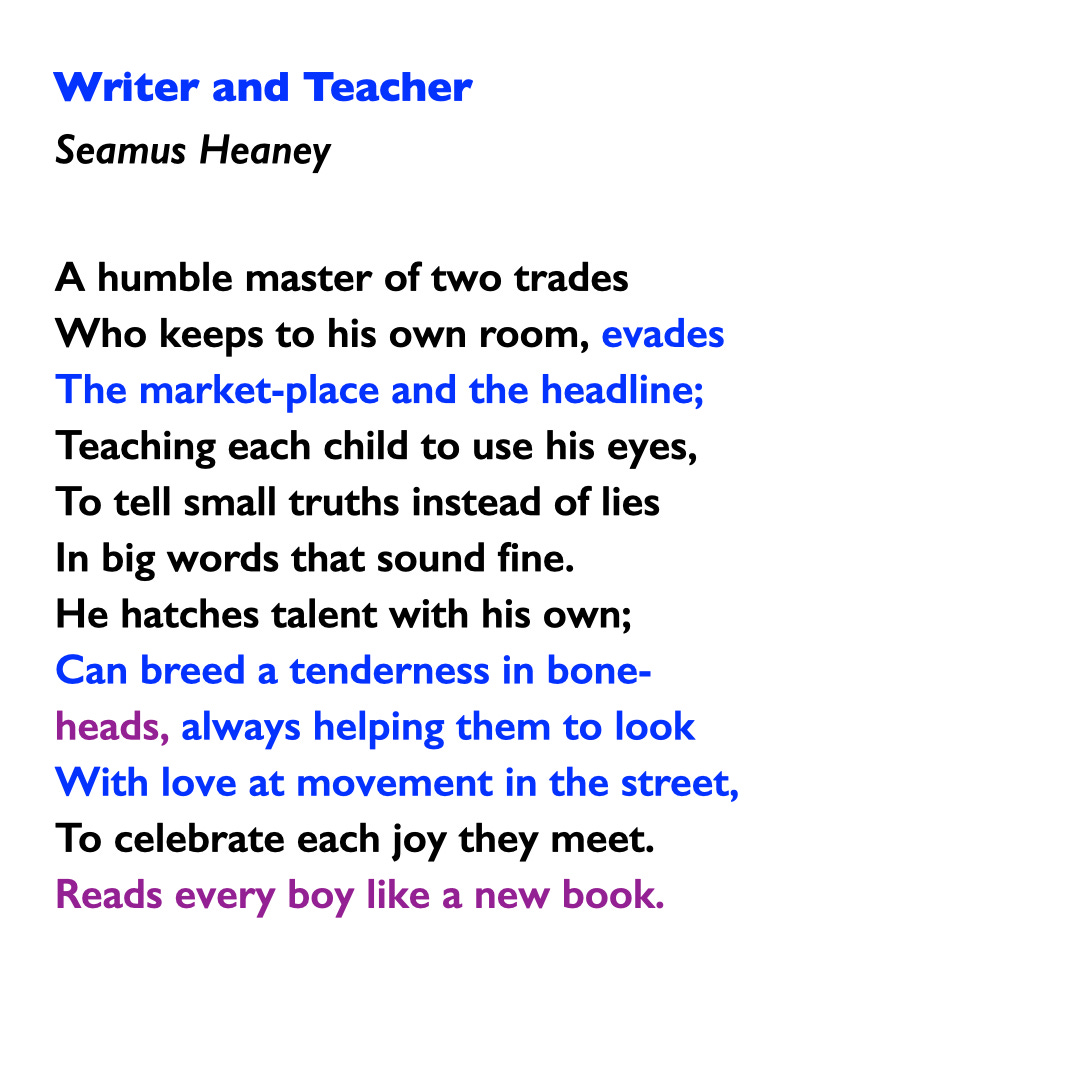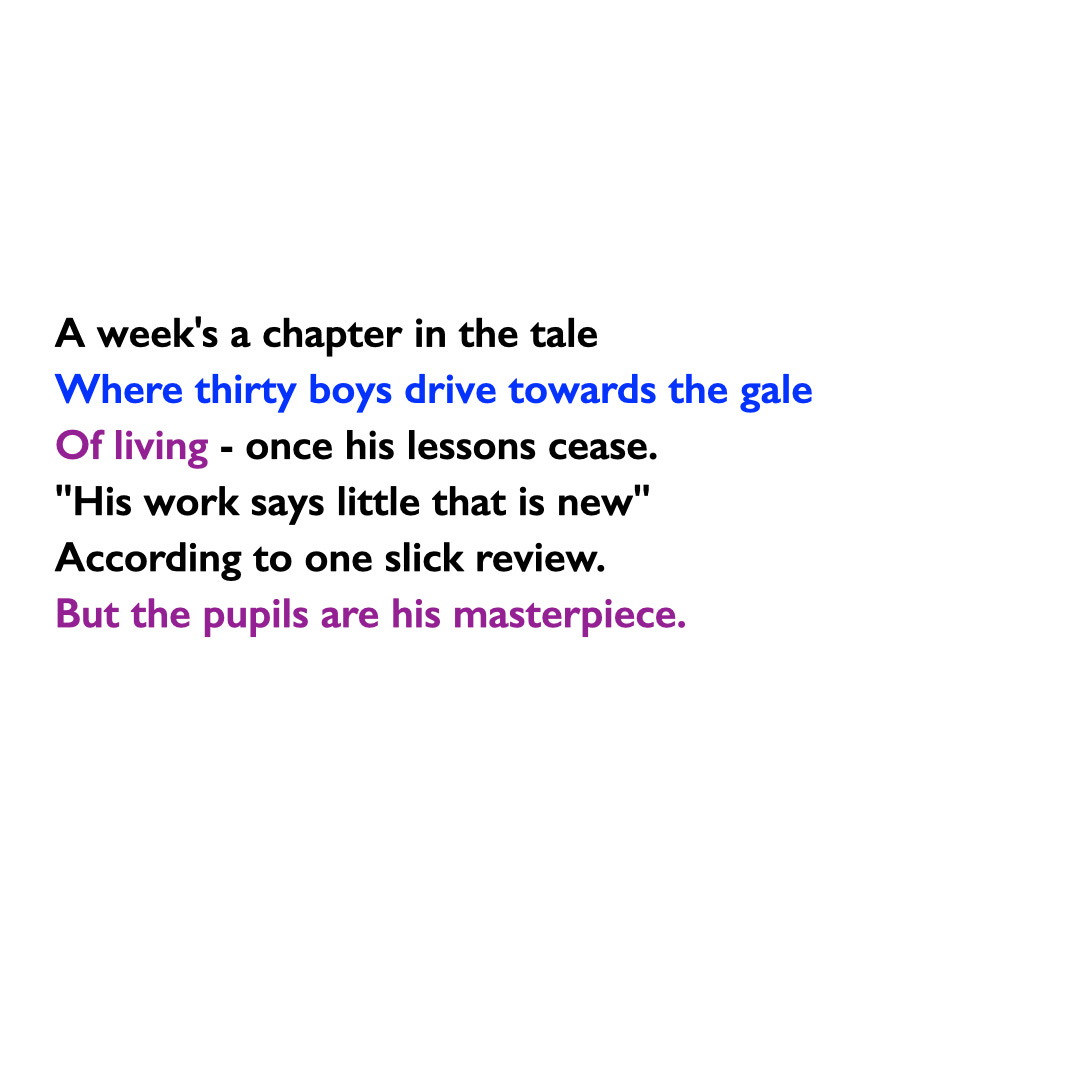Today is observed as Guru Poornima in different places in the country. For me this day is significant as a student of music - specifically dhrupad. Without entering into discussions about the complexities and dynamics of the ‘guru shishya parampara’, I would like to think a little about the notion of learning, and the role of the educator, or a fellow traveller.
There is a great deal of responsibility that rests on the person who takes another (less in experience, perhaps, but as curious) on a journey, and shows them to “use (their) eyes” as Heaney says. It is a moment of great vulnerability, and it must be done with care - both teaching and learning are, perhaps, activities that take place subliminally. This notion of mentorship suggests, not the impositions of rules or a framework, or even what not to do, or the exposition of morals.
It is, to borrow from Berger, to convey a way of seeing. Now, that perspective is individual, the creation that results from it is individual, but it is informed by the space that the teacher creates for such sight to occur. This creation of space - a metaphorical space for observation, insight and learning - is an activity that requires great sensitivity, and it cannot be done without love, and a kind of ‘learned intuition’. It is this sensitivity that I have learnt by heart (not by rote) from my gurus, and while my ‘way of seeing’ and creating is my own, it has grown in the garden of their visions, and their compassion. For this, I thank them.
I share with you today Seamus Heaney’s Writer and Teacher. Heaney, of course was as committed to the cause of education and teaching, as he was to poetry. I share below, an excerpt from his writing (‘Sweet airs that delight’ excerpted from The Guardian) about the effect of poetry on people (he is talking about it in the context of schoolchildren). He references Shakespeare’s Tempest. His poem “Writer and Teacher” is yet another example of the precision in his craft (in rhyme, phrase formation, breaking and making meaning etc.), and a profound tribute to the spectre of the Teacher.
In The Tempest, Caliban's description of the effect that Ariel's music produces in him could be read as a kind of paean to the effect of poetry itself. You remember the lines: Caliban is telling Stephano and Trinculo not to be worried about the mysterious tune that is coming out the sky above them and says:
“Be not afeard; the isle is full of noises,
Sounds and sweet airs, that give delight, and hurt not.
Sometimes a thousand twangling instruments
Will hum about mine ears, and sometimes voices,
That, if I then had wak'd after long sleep,
Will make me sleep again.”"Sounds and sweet airs, that give delight, and hurt not": that, as a description of the good of poetry and of literature in general, will do. It is not required that the experience of the sounds change Caliban into another kind of creature, or that it have a carryover effect upon his behaviour. The good of literature and of music is first and foremost in the thing itself and their first principle is that which William Wordsworth called in his Preface to Lyrical Ballads "the grand elementary principle of pleasure", the kind of pleasure about which the language itself prompts us to say, "It did me good."
If you liked this, and are reading this post not in your inbox, then hit subscribe to get regular poetry and commentary in the form of a newsletter by email.




